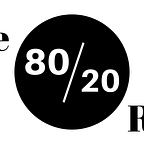The essence of startups
Joining a startup was one of the hardest decisions I made back in 2018. Even now, I see people finding it hard to convince themselves to join a startup. They have a lot of concerns. Since I have spent a good amount of time with Swiggy, I feel I can address these concerns. I will share what is my take and observation on working in a startup.
- The very first misconception that people have about startups is that startups don’t have job security. Well, that is not totally true. If a startup is making you an offer then that means it has a budget to retain you for a good amount of time. Why will a startup hire today if it is on the verge of shutting down tomorrow? Of course, some startups fail, but that certainly does not happen right after you join. For unicorn startups, this question does not even make sense.
- People say that startups have a lot of work. I will say startups have a lot of good work. Developing new features and shipping them quickly into production has its own fun. You build systems and you see it quickly getting used by real people. In bigger organizations, the main product is already stable and the market is mostly secure. Therefore most of the bandwidth goes into maintaining the existing system. The majority of projects are enhancements to the existing system. Also, let’s not forget that “sun burns and the sun shines.” That is the more you work, the more you learn, the better are your odds to stand out in a competitive developer space.
- Extending on ‘more work part’, you won’t be working for 12 hours daily. Yes during the initial days, you will have to burn some extra oil in ramping up. But once you get the hang of the system, you will be working the same amount of time you might expect to work in some bigger organization.
- Some complain that startups don’t have a brand name. The concept of brand name is wrongly set by entities who want to sell you their data structures courses. Reality is your work and your years of experience matter. For sure joining a startup is not a downstep in your career. In fact, it is the other way round. When you work in a brand you work in a brand, whereas when you work in a startup, you become the brand. “If you are nothing without this suit, then you shouldn’t have it.”
- What’s UI without UX, what’s backend without scale. Yes, in growing startups you learn a lot about scalability. If your startup is growing, then that means it is onboarding new users. This translates into a high load on the system. The existing system might not be designed to support that high load. That’s where you get to deal with a lot of scalability problems. Scale issues are always unexpected. Working on scale issues, your college-level understanding of coding suddenly changes. You now begin to look at the implementation from an altogether different angle. You learn a very important lesson: “Don’t take anything(DB, Kafka, Redis, AWS, etc) for granted.”
- Larger organizations have a lot of money to solve their scale problems. Highload? Spin up new boxes and call it a day. At startups, you have to solve scale issues but also solve that in a cost-optimal way. Also, most of the scale problems are already solved in bigger organizations.
- Talking of the compensation part, you are not underpaid in startups. Startups cannot offer you public RSUs that bump up your compensation. If they could then why would they be a startup in the first place? But startups now give ESOPs as part of their compensation. Yes, this is paper money but as the organization goes through multiple rounds of funding, the price of the ESOPs increases. So after a long time, when a startup goes for an IPO, you end up generating a lot of money. Money enough that any other organization might not be able to match it. Money enough to make you financially independent. Please note that there is some survivorship bias when thinking that with a startup one would always make money. Startups do fail. But one can take calculated risks based on the performance of the startup in the market and the founder’s profile. Some people prefer to join startups that are close to IPO so as to get a lot of shares. I personally know people who made a lot of money using this strategy.
- Startups have little or no corporate politics. The reason is simple, “Let’s capture the market and make the product stable. No time for office grapevine.” People really work with passion to make a better product than work only to get a promotion.
- Jack Ma once said, “Go to a small company. Normally in a big company, it’s good to learn processing. You are part of a big machine. But when you go to a small company, you learn the passion. You learn the dreams. You learn how to do a lot of things at one time.” So if you are a fresher, always choose a startup as your first company. You can anyways move to a bigger company after some time. But the experience you will gain at startup, you won’t gain anywhere else. Better to get that at an early age.
Thanks for making it this far. My aim here is not to say anything negative about bigger organizations. Bigger organizations have their benefits and perks. But you can anyways step into a bigger organization after you have worked in a startup. All I am trying to say here is that experience of working in a growing startup is worth having. No reason to miss it.
